Jessica Dandridge works with the Water Collaborative of Greater New Orleans and is a New Orleans native. We wanted to speak with her about the challenges faced in Louisiana with coastal restoration and our relationship with water.
Blake: Jessica thanks for taking the time to chat. Before we get into discussing the coast I was wondering about your roots here and background. Also, how did you became involved in waterway management and coastal restoration efforts.
Jessica: So I am born and raised here in New Orleans. My family goes back generations here in Louisiana. My grandmother and many of my family members are from Breaux Bridge and they still live in Breaux Bridge, Louisiana.
My great grandmother moved to New Orleans I believe in the fifties and sixties to work at Crystal Hot Sauce Factory. So I guess I'm not a generational New Orleanian, but I am a many generations Louisianian and so my life here in New Orleans without me knowing until recent that has always been shaped by water.
I like to joke, I'm a Katrina kid. Katrina hit when I was 16 years old. Actually it hit on my 16th birthday. My birthday is August 30th. So I found out the levees book the day of my birthday. So my whole world is always in a way been shaped by this relationship. With water and it's been something that I really didn't understand a lot of. As I got older, I also found out that my family members also lost homes and valuables from Hurricane Betsy and Hurricane Camille.
When Katrina hit for my family was just deja vu and everybody in my family lost property. My father, he lived by the 17th Street Canal, I believe he had about 18 inches of water. My mom's house had 14 feet. My grandparents, they also lost everything. They were in the 9th ward.
From Katrina, I actually wanted to go in a different trajectory. I ended up becoming a grassroots organizer because of what I saw after Katrina. I went to Cabrini High School, which is near Bayou St. John. Despite the school not getting any massive damage or flooding, I had to drive through piles and piles of debris through neighborhood. Just people's belongings on the side of the road for months.
On top of that, I saw the inequalities and inequities in the public education system. And so I became a grassroots organizer fighting for equity in education alongside the students who went to John Mac. So Cabrini, anybody knows who owns Cabrini and John Mac are on the same street, Esplanade Avenue, and live in very two different, very different worlds I should say.
It was a challenging process, but also a very fulfilling process. So from that day, it was a very helpful organization because it was youth run and youth led. So it was unique. where. We as a youth we're not only going out and doing protests and activism, but we were in charge of writing the grants. We were in charge of strategic planning. I learned how to do strategic planning at 17, which kids today often do not do, or even back then. I worked in the grassroots field until I was about 23 years old at the same time with Colonization University in political science and sociology. A little bit of a break. And then I went to the New School for Public Engagement and International Affairs. And I thought I was going to go work in security and conflict. That was where I was going to study international affairs. And I thought I was going to go work with refugees in Syria and because that was the big topic at the time. And then Trump became president and that didn't happen.
But also something else happened at the same time. And I learned about smart *cities and climate and weatherization and how all of those things work together. And one thing I learned in all my classes even with working with people who worked at the U. N. that New Orleans was always the topic. New Orleans and Louisiana, our coastal work, as well as our urban work, the Katrina and other forms of disaster resilience, it was always a part of the conversation.
New Orleans Is Always Part Of The Conversation
After learning that, I said, you know what, I actually am from New Orleans. If anybody can speak on it, I think I have the ability to do so. It actually changed my trajectory a little bit away from international affairs and into urban resilience and how really focusing on communities of color, equity and thinking really about sustainable development and trauma can inform policymaking. Which is something that's been really important to me.
After graduating, I went to Rockefeller. I worked for Rockefeller Family Fund for about two and a half years. I worked, and that was my first relationship, not with water, but with just resilience and community. I worked with something called a Rural Electric Cooperative, and we helped to democratize it in the Black Belt of Alabama, so I worked across 12 counties.
I basically organized black farmers and rural residents there to democratize their electricity co-op. And it was a really fulfilling experience. Moved back to New Orleans for a bit, and then basically a year later I became the ED of the Water Collaborative. So I gave a little shortened version, but it's been a journey, and my background has always been community resilience and thinking about the relationship between people in urban environments and the climate. This job really honed in on it's like a match made in heaven when I got this job, because it really hones in on my skill sets and where my passions lie. That's a little bit about my background.
Blake: In the conversations I've been having with those who work on and along the coast, this idea of Engineering the problem, that we're trying to create control of nature, to build levees and barriers versus allowing nature just to do what it needs to do. Do you have thoughts on how we can engineer our way out of the situation we have found ourselves when it comes to our relationship to water? Or is it inevitable that we have to change our approach to controlling nature to live along the coast?
Control and Capture
Jessica: Yeah. That is an interesting relationship. The relationship we have with water is one that it is rooted in a neoliberal capitalist mindset. The relationship we have with environment, right? Originally, when the French came here and then the American settlers, they saw the Mississippi River and they saw the land. They were thinking this is something that has to be controlled and captured.
And that is really rooted in pretty much all America and your European mindset around our relationship with the earth and other people, right? The way they talk about. If you look at old footage and you read old writings from Bienville and Iberville and all the other people who came and captured, it's all about capturing and controlling and not necessarily understanding or living with.
And that is also seen in the relationship, obviously with the enslaved and the indigenous communities of Southeast Louisiana and the Gulf Coast. So I'm pointing that out because that has always been how we have initiated a relationship with this.
Even with New Orleans and specifically, the Woods Screw Pump that was created in 1913 by Albert Baldwin Woods. He created it again to control this environment.He wanted to control or basically make New Orleans something that, it was never meant to be. It is a delta. It is a wet, humid landscape, and they wanted to make it dry. And they succeeded in that partially. And so we wouldn't have certain communities had it not been for the pumping system and the levees. There would be no Gentilly, right? There would be parts of The West Bank, where I live in Algiers, the back of Algiers, that was a swampland that would not exist.
So yes, New Orleans was able to expand in one way, but the other way we, our relationship with the ecology here has always been about controlling and conquering. As a default of that and one of the outcomes of that is that basically we have degraded our land and now we're living with these compounding issues and in Louisiana. We often talk about coast and coastal land loss and sea level rise.
But even New Orleanians growing up here, no one thinks of New Orleans as a coastal city, even though it absolutely is a coastal city. People here, because of the Wood’s Screw Pump and our dependency on pumping, our dependency on levees and canals and drainage, we often think of ourselves as not and we get offended when people say we're coastal.
They say, “no, that's Plaquemines Parish, or no, that's Houma, or that's Venetian Isles, or Grand Isles. It's not us”. And that has been to our detriment, not only to the urban area, but to the entire Southeast Louisiana that we have this push and pull relationship.
Living With Water
Bringing it home to today, we realized that was a problem.
So, the green infrastructure, water management, and natural infrastructure movement happening was elevated in 2013 with the Urban Water Plan and the idea of living and thriving with water, and that is such a new concept that even still a lot of engineers and even the Army Corps can't necessarily process.
It requires a mentality that you have to live, literally live with, just like you may live with your family or live with your dog, You have to live with water. So it's a balancing act and then thrive with it. How can we use water as a tool for economic and social liberation? How can we use water as a tool for long term sustainability in Louisiana and not as our enemy.
Obviously, for a lot of people there's trauma. I mentioned earlier trauma informed policymaking where there is fear around living with water. Because of, obviously, hurricanes and the flood of 1927 and the many floods that happened before that that were not written down in the history books.
And there's other trauma there too, when we think about the enslaved, people often don't realize, but before the flood of 1927, a lot of plantations had to build their own levees around their fields, and the enslaved were a part of that process. They had to build those levees for them.
And so there's a lot of trauma around building, but also having to basically see your product, or maybe having to do this every spring or every summer. And so there's just a lot of weight there. So when Louisianans are approached with this idea, they're like “I lost my house,” and there's generations of people who lost to water. And it's only reason why we've lost is because we have been trying to control.
And so if you look at the world today there are a lot of communities that live and thrive with water, right? You can look at communities in Africa, communities in Southeast Asia, Hong Kong. Obviously people always talk about the Netherlands, and I think the Netherlands is an amazing example of an engineered version of that.
But I don't think New Orleans or Southeast Louisiana needs to be as engineered as we want it to be. I think it's something that we've held onto, and I think it's something that we have held close to our heart because it's what we know. But if you look at communities around the world, they do live with water and they are successful in that process.
Because we've engineered the land for so long, I do know the reality is that we have to continue to engineer. It's like you break your leg and you're always going to have a chronic pain. It's literally now we just have this chronic reality of we have depleted our land. We have subsidence. The sea level rise because of climate change and carbon emissions. And Louisiana's third in carbon emissions which is insane considering our size when the other states that are doing it are much larger. So we have to live with what we created. But we can do it much better.
There's a movement here about that and it's been really successful around green infrastructure and stormwater management. But it's again seen as a very small movement that's maybe commercial or residential and there have been some larger projects. But making it a movement amongst all engineering groups and all architects and amongst the water management sector is a bit of a struggle because we've held tight to these ideologies that are rooted in the degradation of the land and degradation of people.
Business First, Land Second
Blake: Do you find that with folks waking up to the reality of now being a key turning point to act, to turn the tide, if you will, for protecting the coast and saving as many of the communities as we can along the coast, do you find that the mindset that got us to this point is beginning to change? Do you have optimism that there could be new STEM educational approaches within schools and new industries that could be coming out of the work that's being done along the coast? Or are you still worried that the powers that be within the state are still not clear that it can't just be business as usual.
Jessica: I’m cautiously optimistic. I think that we are at an unprecedented point in not just American history or world history, but also Louisiana history. And I think there's a lot of people to thank for that.
There's the grassroots movement of coastal workers. And then also, as I mentioned, the green infrastructure, water management movement that is very much related to this natural infrastructure movement of Unengineering land that we engineered for decades and centuries. So there is a movement that has been successful. And just to give a synopsis, I was at a press conference and I heard a bunch of people from the state Democrats that said, “Yeah, we're gonna live and thrive with water and coastal restoration,” that I was really impressed with their use of the language.
And that speaks as well to John Bell Edward’s Louisiana Watershed Initiative, which he just launched. And also this larger idea of the carbon reduction through the Climate Task Force. And so there's a larger movement, but I'm cautiously optimistic, because in order to achieve this zero emissions world or a world where maybe coast can completely build back, which I'm not as detrimental that the world's going to end, like some of the theory scientists who say, “We’ll never get it back,” And maybe they're totally right, and maybe they're totally wrong.
I think that there are ways for us to build back our coast strong enough if we let it be and we do what we're supposed to be doing and not prioritizing capitalism and neoliberal philosophies over our land. The reason why it's not building back fast is because we're like, “Oh, we still need to ship and we still need oil and gas and we still need this,” and so my point about being cautious optimistic is that we can't say we want these things and then still do things that are harming the process.
It's like using a very small example; It's like you want to diet. Well, I'm going to eat ice cream every night, but I went to the gym. What's the problem? You're healthier, maybe, but you're also not going to lose any weight. It's the same way to think about it is that we really want these big ideas, right? Louisiana wants to protect itself and really thinking about the whole movement as itself, especially from a conservative perspective, it's not really about the land. It's more so about protecting businesses. It's more so about protecting economic development. It's more so about protecting large corporate interest.
And so it's less about people. It's less about environment. Until the day we make it about people and until the day we make it about environment and making it about rebuilding Louisiana to where it was, and then in order to do that, reducing our carbon footprint, reducing the way we use the land for development, or changing the way we use land for development, we will never achieve this long term goal.
Do I think that will change? Yes, I think that there are younger generations here in Louisiana and across this nation who are prioritizing people and land over money.
The thing about America is that it's proven that it can make money. America has proven through slavery and the cotton gin and sugar and then proven through the Industrial Revolution and proven through the cars and the Rust Belt. We can do it. We no longer need to prove to the world that we could do it.
We need to prove the world that we can do it better. And in order to do that it requires us to do some self introspection and changing the way we have relationships with land and people and animals and the whole thing. So, that's kind of where I am on that.
Changing our Relationship with the Climate
Blake: Where do you see with this younger generation? I know that the folks with the Lake Pontchartrain Foundation and work they're doing is trying to find ways to invest in STEM education that deals directly with protection of the coast and such; Where do you see some of these new potential skills and industries with college students and these kids who live in the coast growing up. The most optimistic view, what are your hopes for some of the benefits that can come out of that with some of the younger generation?
Jessica: I think there’s a lot of hope. I hear youth today, and when I say youth, I'm speaking like from seven or eight years old, all the way to mid twenties. I mind you, I'm 31, so maybe some people may consider me youth, maybe they don't. I'm a millennial. So I'm looking around me, right? I'm 31. The people in my age bracket are prioritizing people and in communities and the earth over profit. They are also looking at things in the holistic system. I look at my parents and my grandparents and they see things in this very small trajectory of, “I need A, B and C,” and there's only one way to do it or two ways and if it's not that, it's not right.
What I love about being a millennial and also Gen Z and hopefully whatever the next ones will be, Gen Double Z, I don't know what they'll be called, but they think of things intersectionally and they think of things in a multidisciplinary framework. So they're rarely, especially when you're talking about topics of environment and climate, they're rarely seeing themselves in an individual aspect where, “It's just about me and my personal profit.” When it comes to people working in climate or thinking about climate and often almost always when I'm talking to young people who are interns or students, they're always thinking about equity. They're always thinking about classism. They're always thinking about racism. They're thinking about gender. They're thinking about all of those things in relationship to the climate.
And so that is what we need as a society, especially in Louisiana, where we're thinking about all of the intersections of water and climate and coast and urban infrastructure and rural infrastructure, all of that. Because we don't live in a system where we're by ourselves, obviously, when you get on the road, you're with people on the road, so why would we think of ourselves individually? With that being said, the things that Pontchartrain Conservancy and I know Urban Conservancy has programs in Stem NOLA, there's a huge movement here to get young people into the the sector, whether it's from engineering and architecture and landscape architecture to data collection and research, to PhDs in environmental science, environmental justice, climate justice. There's so many ways and so many intersections.
That's what I love about this work is that it's not one route and then you have to take that route. There's so many ways that you can tackle climate change, and you can do so within your passion. And it's encouraged in this work. I think what my cautionary, I don't want to say cautionary, but it will take a while, right? I just had this conversation with people in the city, that the people who are doing this work, the firms that we're building and implementing, they've been doing this for many years and they have all this amazing experience. But when you're talking about coastal restoration or changing the landscape to what it may have looked like 2000 years ago, people who are in this industry are apprehensive about it. Or they don't want to do it at all. They're, “like we did it and it works better than this.”
And there's a lot of that out there. So I think that as we shift in generations, as we shift in the age and mindset of our leadership politically and socially, I think the environment will shift. I think, I'm just hoping that generations who've been accustomed to a particular style of working or engineering or implementation, will hopefully jump on board and I think it is happening, but at the pace is happening is not as strong. Because it’s not just going to be or it shouldn't just be CPRA or Office of Community Development or Louisiana Watershed Initiative, it needs to be every single aspect of our livelihoods.
And so it's not enough for just young people to do STEM and maybe one day in 18 years become an engineer. It's not enough for a young woman to become an environmental lawyer in 20 years. It's gotta take all of us right now to change all aspects of our livelihood if we want to see coastal Louisiana and New Orleans as it is or in some form of what it is today.
So I am for the young people, they are the future and no matter what, if it's 2040 they will still be doing amazing things. My concern is I want to make sure myself as the 31 year old, but also younger generations behind me have something to work off in the first place. I'm always thinking about the now.
I know the young people will be fine. I know they will be amazing and this country will get better and better because of them. What I'm worried about is the now and that transitional shift that we have to do as a nation where all people of all ages, races, classes, and genders have to think about where are we all going to work together and how we're going to do it, and we need to do it really fast. And that's the struggle.
Blake: There, there definitely is a segment of the population in Louisiana that they do not like change. I understand from some of the other interviews that I've had that there are definitely folks, where they're at a point of, “this is where we have lived and prospered for generations and we see the end as you do, and we're just going to ride out the next two decades,” and then that's it. They’re not interested in uprooting and moving and such, but unfortunately there will be communities along the coast that its just simply inevitable that will need to be moved and entire communities are going to have to adjust and that there is just an inevitability there with being on the coast and where we are with climate change. And that's extremely difficult and it's one of the probably hardest subjects to address when you're talking about a coastal master plan.
But it's just an inevitability.
Challenge of the Resilient Mindset
Jessica: It's an inevitability and I think the thing about the beauty of Louisiana, but also our crutch, is that we are resilient. And sometimes I get frustrated with that because as Louisianians, as a nation, people think, “oh, they can take 15 hurricanes,” it's like we can be beaten up and we'll be fine.
I don't think that's a healthy mindset. And I think when you hear people from the coast, that's what they've been taught to think of themselves. And that's how they think of themselves, right? It’s reciprocating this, “I am resilient. I am strong and then I have to be strong because I'm getting less resources from the federal government and investments.”
I think that a lot of coastal communities are, it could go two ways, where they're just going to have to leave no matter what, and they will, many of them, I would say 90% of them are going to have to leave and they will leave. I think that there, though, will be people who will never leave, and if it means them living in like boat communities or like on a floating community like they do in Hong Kong, they will do it.
And I respect that. And I understand where they're coming from. And I think that we as a society in Louisiana have held on to ideas that are not true. The world that we live in here and Louisiana has not been here for 300 years. We talk about, “Oh, we made 300 years of the city, yay!” But really is 70 years maybe like in the making. We have not looked like this forever and so I don't know why we're holding on to these false narratives like, “We've always had pumps,” no we haven't. “Oh, this is how the land has looked.” No, this actually was part of Mississippi River and now, with the river diversions, it will be back to the Mississippi River. It didn't always look like this. And one thing I love about being a Louisianian is that we are so tied to our traditions and our histories and our communities and that's what makes us such a strong, vibrant people.
I've lived in other cities, and there's no other city like New Orleans, and I'm not just saying it because I am from here, but I am, but I think anybody who's not from here would agree. I also think that's also our crush is that we're so used to, we dig down so deep into what we know, and then we don't want to change, even if it's at our detriment.
It's the same thing goes here in New Orleans with urban infrastructure and green infrastructure. “Why are you putting this bump out thing with these plants? Just pave over it.” I have to remind people that pavement doesn't drink water and they're like, what do you mean? Of course it does.
They have this mindset and it's hard to break into that. If we can help make Louisianians more pliable and more open to change and innovation, we could be one of the greatest places on earth because we have all the resources at our disposal. We have some of the most ingenious, creative people in America, but we are very much tied to tradition.
And if we can break out of that, we can basically save Southeast Louisiana and probably half the country from what we've learned.
Blake: Yeah, that does tap onto this idea of being the canary in the coal mine. We are either going to be the example of what to do or we are going to be the example of what not to do. And the rest of cities like Miami and New York, where there is just an enormous amount of real estate and capital that there are a lot of interests to protect those areas, and then there is going to be an enormous amount of capital flowing into figuring that out. That will benefit us in the long run, because we will probably be able to jump into a national infrastructure support plan in the future. Maybe that will be some additional capital we get once the BP funds have run out.
But yeah, I think we definitely are going to be something, we are already, a place where people are looking and watching to see what we do, whether we do it right or not.
Indigenous Water Relationship, Accepting The Ebbs and Flows
Blake: Two more things I wanted to hit on. One is whatever you might know with your own experience and studies on ways in which dealing with water, living around water that existed hundreds of years ago for the indigenous cultures that lived in this area; are there things that we can learn from how we used to live with water before it was just all about controlling it, ways in which we were used to living with water in the past that we may be learning from with new solutions for specifically New Orleans, but just in some of the other coastal cities.
Jessica: Oh, absolutely. This makes me think last year in the middle of a pandemic, we're still in a pandemic. But when the middle of the height of it, I was invited to do a pilgrimage down the Mississippi River with Indigenous and black females and two spirit folk. We stopped in seven cities on seven full moons, all down the Mississippi River.
And I went in thinking it was like this research, we're going to meet with communities and talk about water. Yay! And it was not. It was some of the hardest work that I've ever done in my life. And when I say hardest work, I'm not talking about physically, I'm talking about mental and emotional lift and pull that it requires.
The thing about Indigenous ways of life is that we don't have any concept of it in our real life. I'm working with indigenous communities, you think you know about it. You watch the documentary and maybe some movies and read some books and everything, if it's accurate is the tip of an iceberg.
And if it's inaccurate, it's nothing. It's absolutely incorrect. And so what I learned from the indigenous women and men is that we are working, I talk about capitalism and neoliberalism, but we're working, especially in Louisiana, we are working from a trauma informed way of living with water and an environment.
And they are the originators, literally the GOATs of living with water and thriving with it. They understood that when the spring came, they went to higher land, higher ground, because the Mississippi would swell. And they knew where to go.
And we, as the way we live today, we don't do that, right? When the Mississippi gets full we just open up the Bontecarre spillway and hope for the best. Fingers crossed. I think that really understanding the ebbs and flows of the land is going to be key to how to live with water in ways that we don't do now.
If it rains, we just automatically turn on the pumps and If the Mississippi gets too full, we move all these dams and spillways and hope for the best. And really the way the indigenous people worked is they understood how the land was going to work. So if it's on this full moon, then you know, the, if the water's going to rise, or if it's a spring, the water's going to rise.
If it's a winter, the water is not going to rise. And I think that's the only way to solve a lot of this, is looking at the way they manage water in the land and basically duplicating that or learning from that in our day to day. We cannot, what I learned from indigenous people when I worked with them is that *you cannot engineer yourself out of this. There's just no way.
Our dependency on gray and big steel and cement infrastructure is not going to be our saving grace. And similarly, even with coastal restoration projects, they are depending on this engineered format to solve coastal erosion and restore it. And what the indigenous folk have always said is that the land knows itself better than anyone on this earth does. And if you let it do what it's supposed to do, it will do what it's supposed to do. And it's really about accepting the processes of how the land operates and accepting the ebbs and flows, accepting how the earth wants to manage itself. We want to continue to engineer it to do what we want it to do.
And that goes back to my initial point; I love green infrastructure. I love bioswales and I love talking about it. I love talking about coastal restoration. It's so interesting and all of that, but what I notice, no matter if it's urban or coastal or rural forms of infrastructure, we're still trying to make and manipulate the land to do what we want it to do.
And until we figure out how to have the land do what it's supposed to do, and then allow it to do it, and then we live with how the land wants to be lived with, then we're going to continue to run into this problem. And that kind of goes back to that mindset component that I was talking about.
And then lastly, I mentioned like trauma, right?
Build With The Land
We are working from this traumatized perspective. And the reason why we're traumatized as residents of Louisiana is because we were engineering the land. I always tell people Katrina didn't happen or Camille or Betsy didn't happen because a tropical storm came through.
When we talk about it, we're really talking about engineered land failing. The levees failed for Katrina, the levees failed for Betsy and Camille. The canals didn't work, the pumps didn't work, and never in any of that, did we ever think to ourselves, maybe we should have just lived with the way the land was operating in the first place, and we wouldn't have as much death and destruction and social and economic trauma in Louisiana, if we just had let the land do what it wants to do.
You can look at other places around the world. You can look at Europe. We talked about the Netherlands and parts of Asia and how resilient they are. Well, Japan had tsunamis, and it was devastating. It was absolutely devastating.vAnd they build back, but if you go and look at their land, the way they build, with the land. They don't build against the land. And until we figure that out and we accept it… And so I think if we want to do anything, if we want to include indigenous voices in this conversation, we have to do a lot of that work and healing ourselves.
And that goes back to that pilgrimage I mentioned where I was really, it was hard because it was like, wow I didn't realize that I was doing things that are completely against indigenous ways of life. You think you are like, Oh, yeah, of course I do this. But really, we're not. It's not even really necessarily about plastics or carbon as much as it's about relationships between you and other people and the land and understanding and respecting that relationship and little do we realize how we don't do that. And so that's an uphill battle. I think even the most progressive people would have a struggle with.

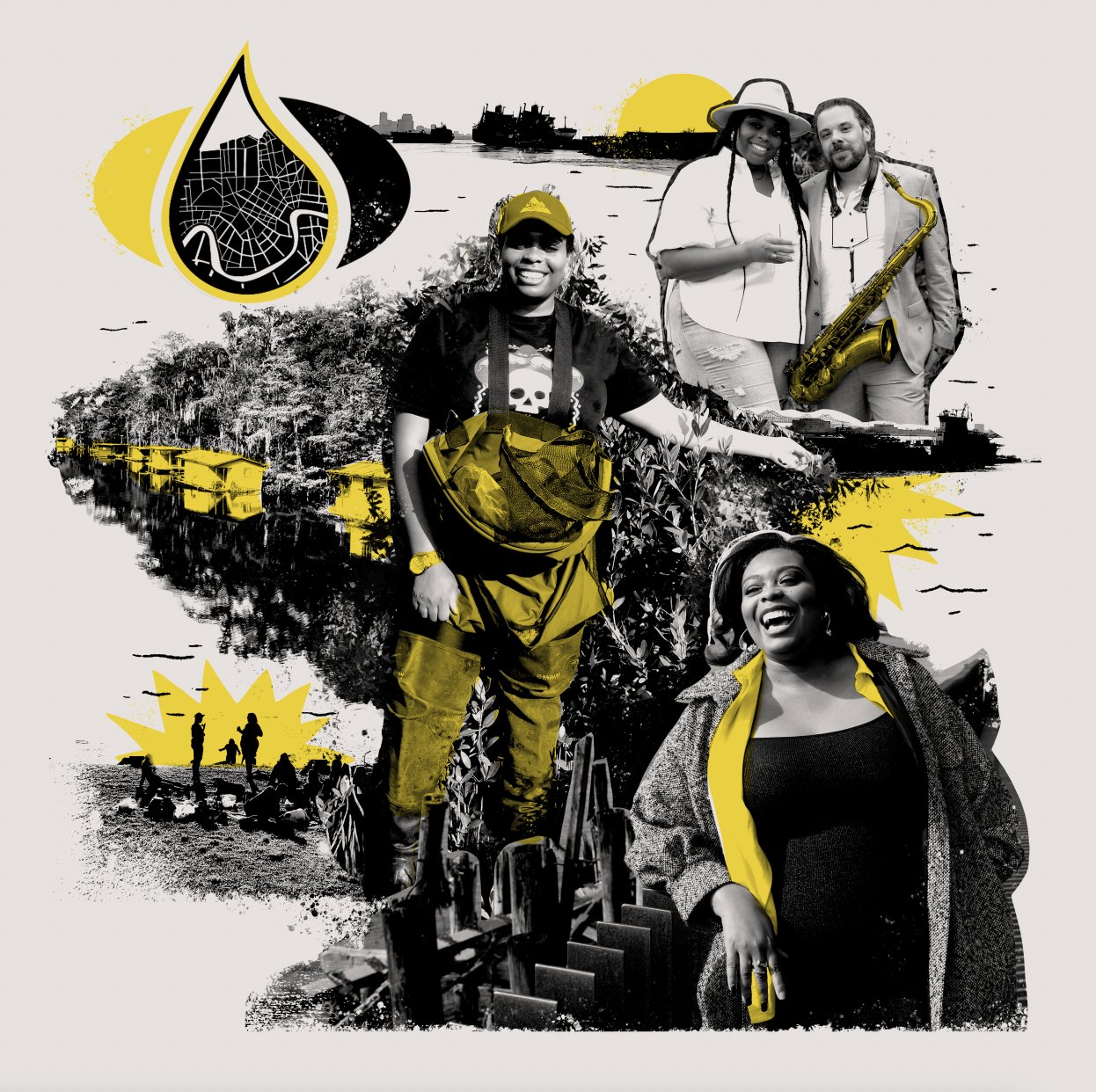
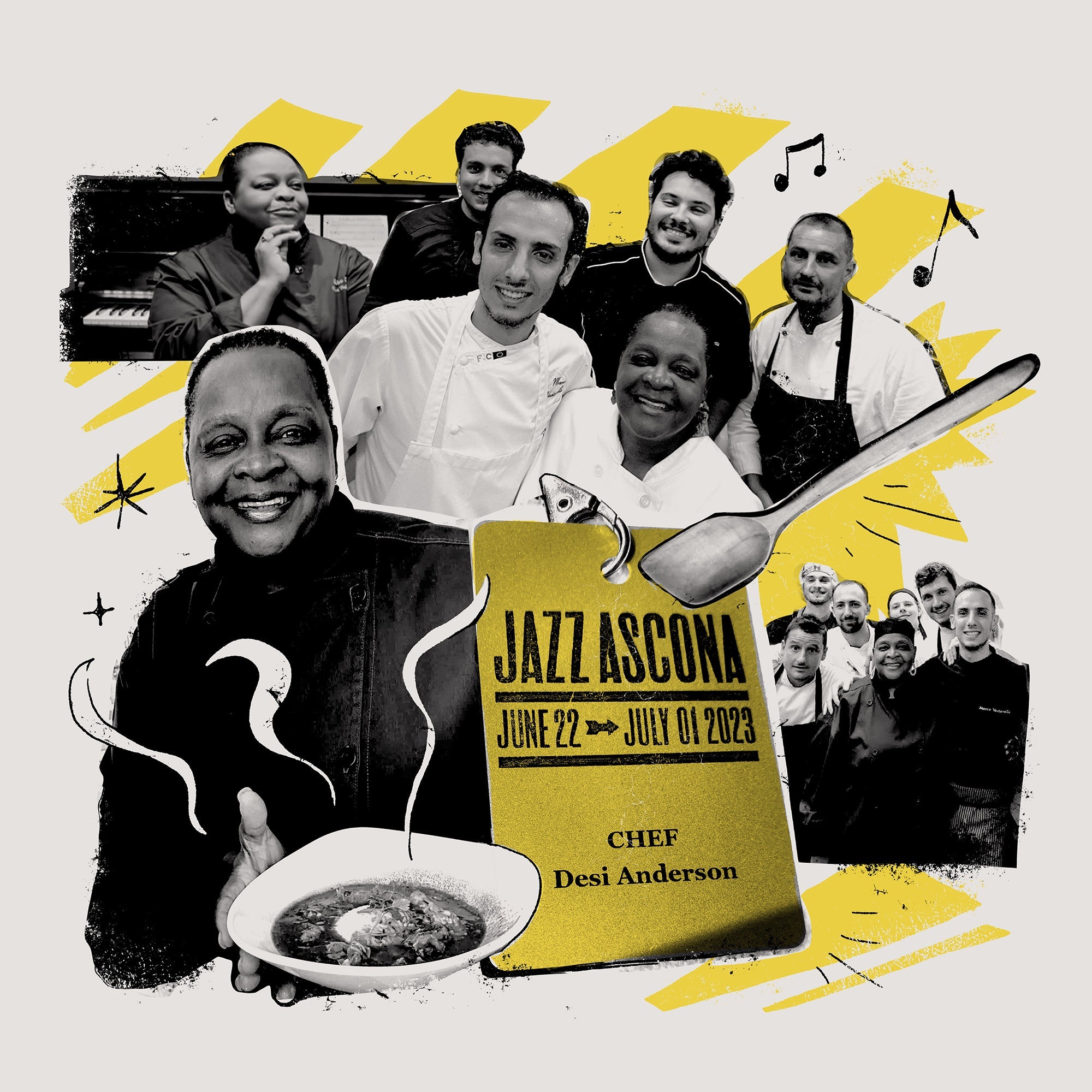

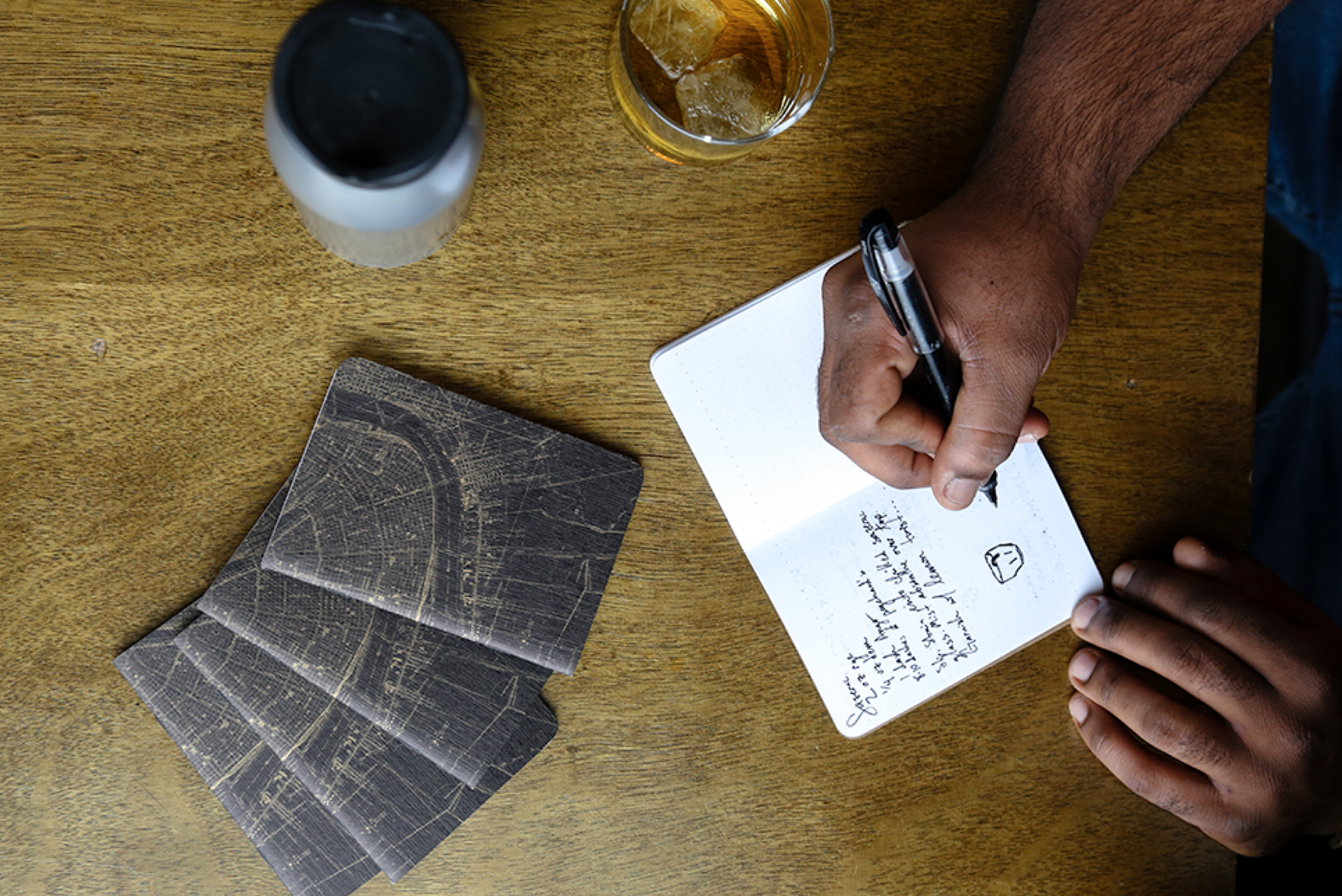


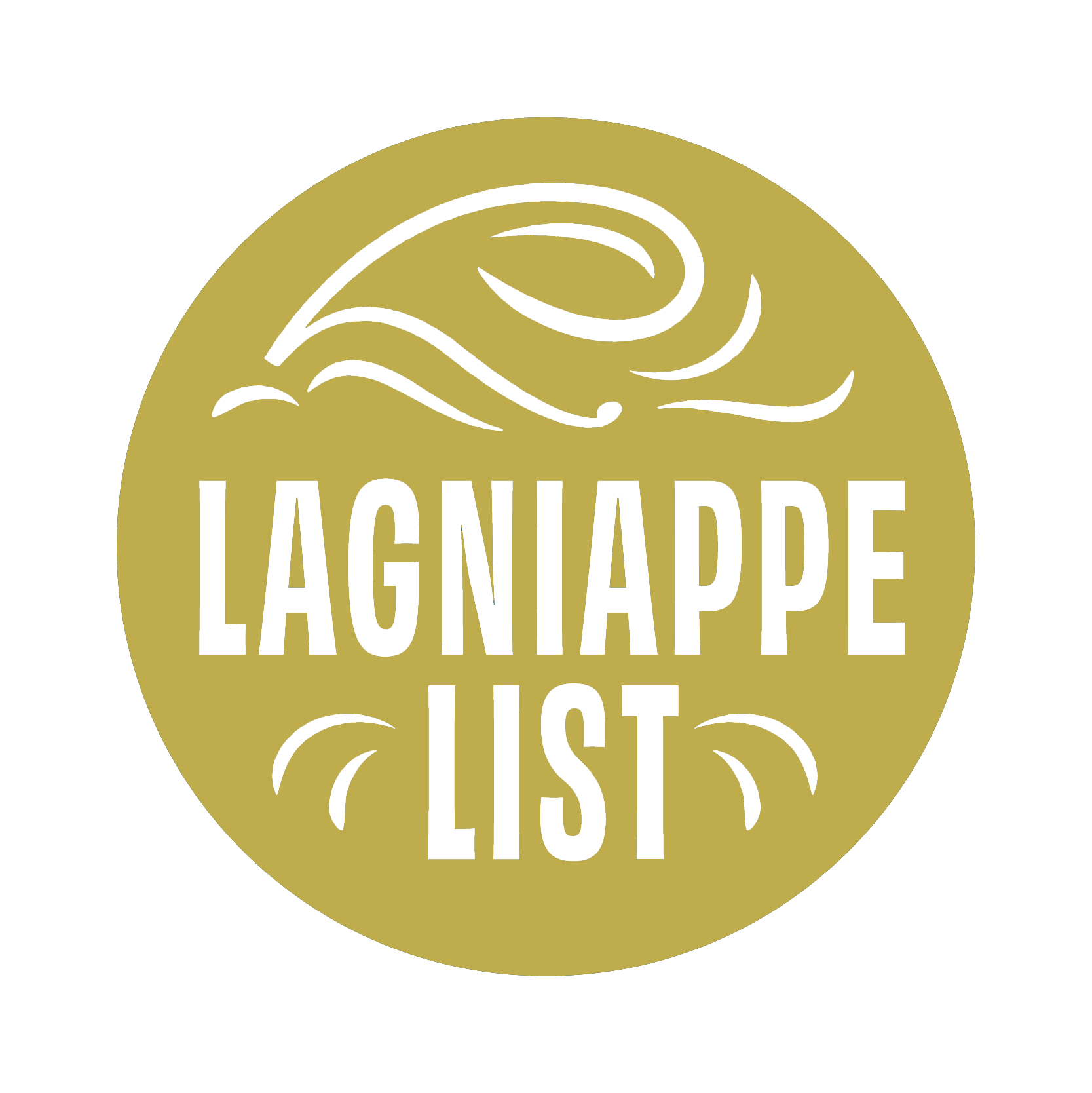
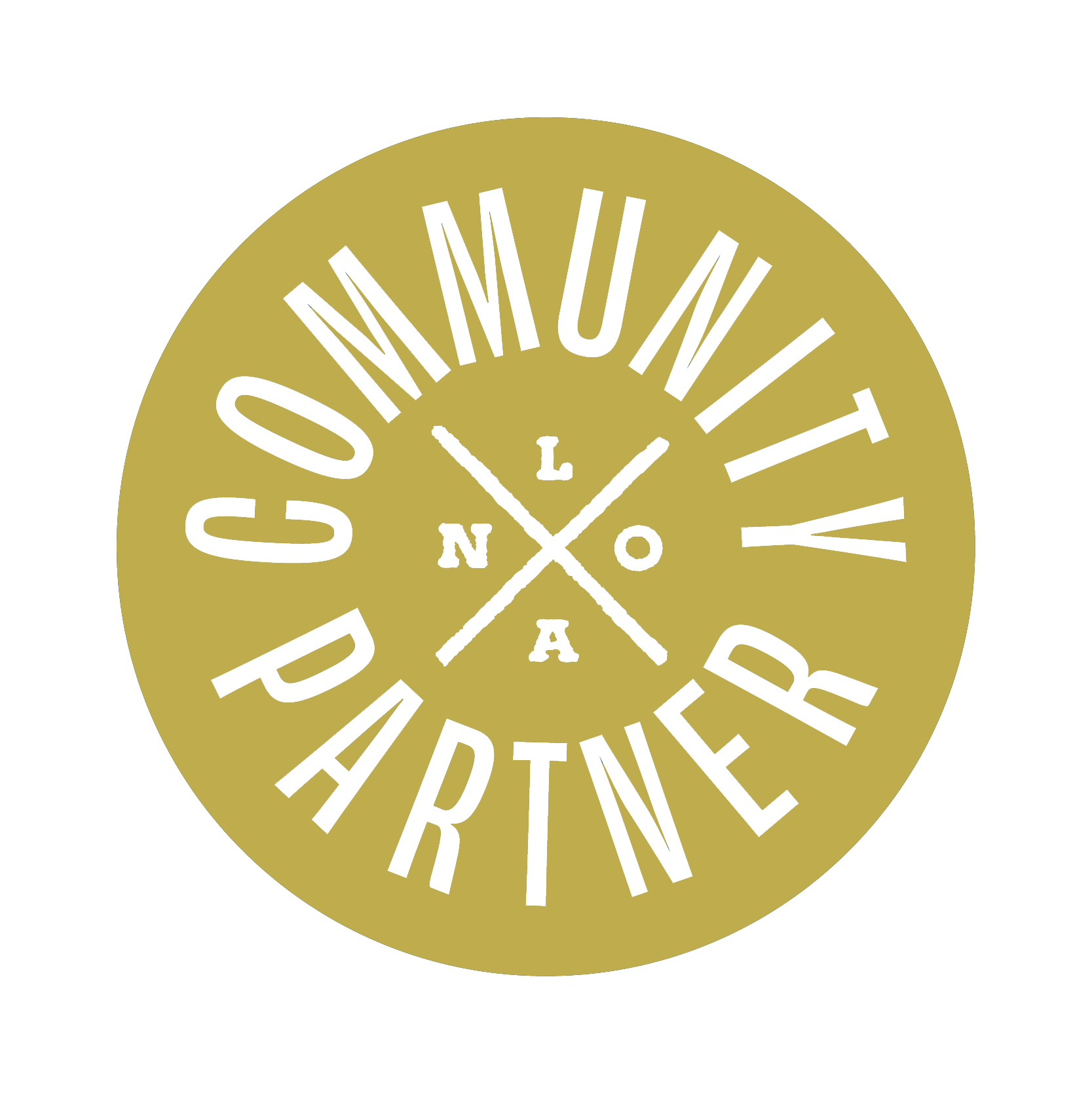
Leave a comment
All comments are moderated before being published.
This site is protected by hCaptcha and the hCaptcha Privacy Policy and Terms of Service apply.